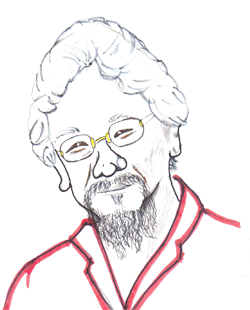Why Canadians Need Property Rights
Written by Scott Reid, MP, ad Randy Hiller, MPP | Lanark, Frontenac, Lennox & Addington
In the not-too-distant past, property rights issues were always top-of-mind, because the rich and powerful were landowners with large estates who wielded great political and economic influence. So legislatures could be relied upon to ensure that the right to use and enjoy property would be protected. But Canada is now a largely urban country, and the rich and powerful generally derive their wealth from sources other than land-holdings. But many Canadians still earn their living from the land, and have most of their wealth in the form of land.
The urban-dwelling Canadian majority has legitimate concerns about protecting the environment for the present and future generations, but have little or no idea (and therefore no concern) about the devastating costs that these pieces of legislation impose on the land-owning rural minority.
Laws to protect property rights are necessary to ensure that the costs imposed upon rural landowners by legislation that is deemed necessary ‘for the public good', are compensated by the beneficiaries: the public. This is simple fairness, honesty, and decency – and Canadians are by and large, fair, honest and decent people. Few would disagree that rules which are designed to benefit all Ontarians should be paid for by all Ontarians, rather than by a small (and not terribly wealthy) minority.
Why Constitutional Amendment is "the" way to go:
Every province has an Expropriation Act, which provides reasonable compensation for the outright government seizure of real property. Common law has long held that "de facto" expropriation - a province or municipality removing or diminishing the use or value of property without actually affecting the formal title to the land - is subject to the same kind of compensation. Unfortunately, this common law concept is routinely overridden by provincial legislatures - the statute books are full of laws authorizing different kinds of de facto expropriations. In the vast majority of cases there are no avenues for appeal and no provisions to provide compensation to the victims.
The only way to prevent such expropriations from continuing, and expanding, is to enact a constitutional amendment that effectively strikes down any law that overrides the traditional common-law right to compensation in cases of de facto expropriation.
Using the amending formula in Section 43 of the 1982 Constitution Act, it is possible to amend the Charter of Rights to prohibit an individual provincial legislature from enacting laws that restrict property rights (or any other class of rights) in that province. What is required is that an identical constitutional resolution be adopted by the particular provincial legislature and the Parliament of Canada. This does not involve re-inventing the wheel – the process has already been used before by New Brunswick to add language rights, which apply only in that province, to the Charter. Individual provinces can use the same route to acquire constitutional property rights protection for their citizens.
Why the property rights movement needs You!
Democracy only works when the population is (a) informed, and (b) engaged. Democracy does not work at all when people forsake their responsibilities to their families, neighbours and fellow Canadians by remaining ignorant about the important issues and complaining instead of taking constructive action.
Legislated property rights protection that includes compensation for government-imposed losses of use and enjoyment of our property will only be achieved when you decide that you want it. If you are not demanding it, it will never happen. It's time for Rural Canada to speak up – we've done it before, let's do it again!




